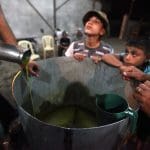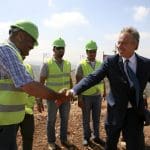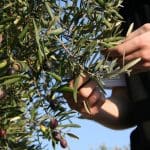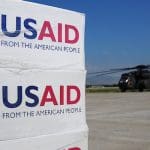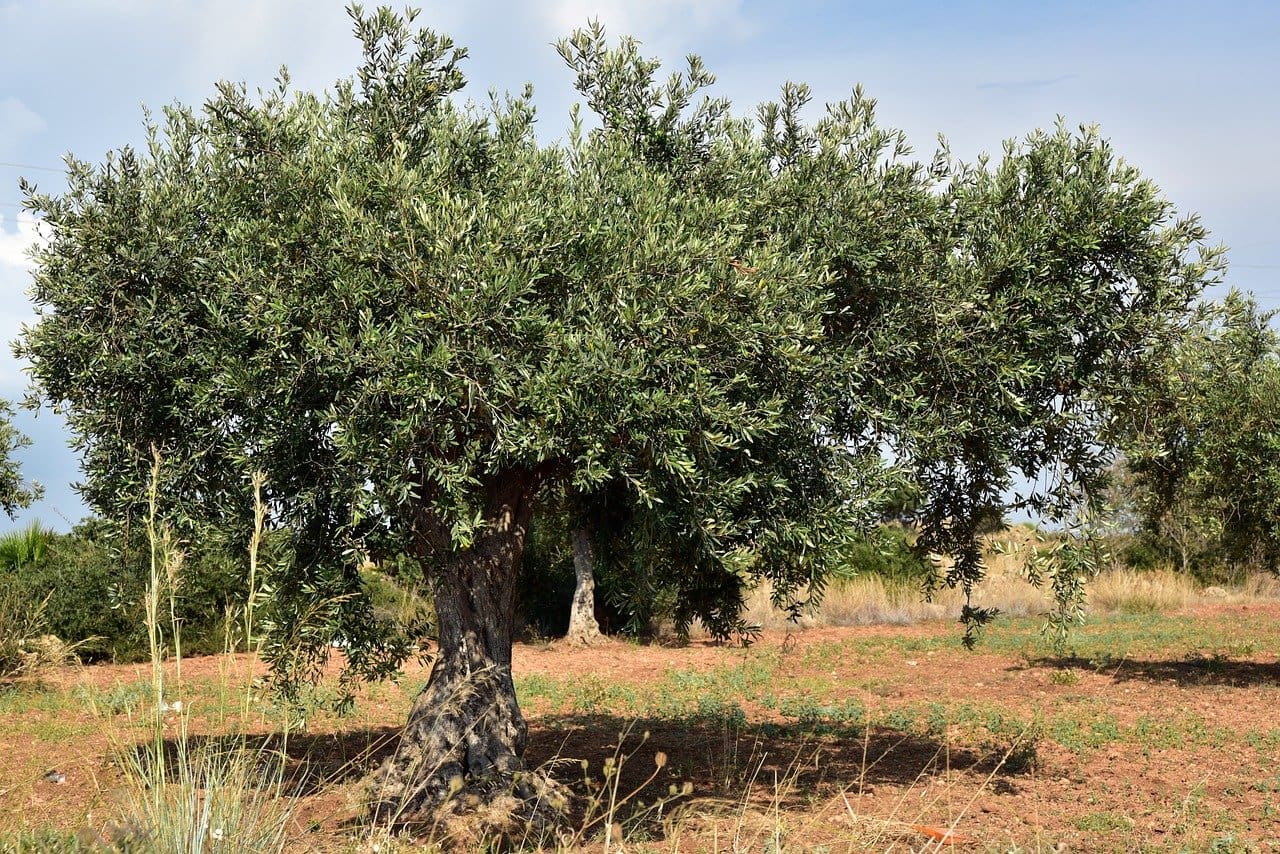
Summary Overview
An emerging inclusive enterprise development framework can work in the Palestinian context. A Sustainable Local Enterprise Networks (SLENs) approach to development and reconstruction has shown promise among war-affected communities in Lebanon and is currently being explored across Sudan and for Palestinian refugees. Al-Shabaka policy advisor Samer Abdelnour analyzes Oslo-inspired pitfalls of Palestinian development, misguided donor attempts to promote private sector development, and the promise of SLENs.
Oslo and the ambiguity of aid
Since the Israeli occupation of the West Bank and Gaza in 1967, Palestinian economic and social de-development has evolved along a path-dependent model aligned with Israeli economic and political interests (Roy 1995, 1999). This process continued and worsened after the Oslo Accords of the 1990s. The economic power imbalance between the Palestinians and the Israelis was institutionalized at the negotiating table through the 1994 Paris Protocol. Signed by the Palestine Liberation Organization (PLO) with Israel, the Protocol maintained Palestinian economic integration and dependency on the Israeli economy and denied Palestinians the opportunity to develop economic borders and sovereignty. The Protocol gave Israel full control over taxes, revenue collection and related disbursements to the Palestinian Authority (PA); maintained Israeli control over the passage of Palestinian regional and international trade; and provided for an open Palestinian economy with no restrictions on foreign ownership or transfer of net profits. Because Israel made acceptance of the protocol a condition for allowing continued Palestinian work permits in Israel, the PLO felt little choice but to accept it.1
Oslo emphasized the use of international funds to develop the Palestinian economy. International funds are directed to Palestinians without pressure on Israel to end its occupation or remove structural barriers to economic and political de-development. International donors have significant influence over the PA through formal aid structures, steering committees, and multilateral working groups. The result is a “checkbook” diplomacy, whereby international aid indirectly funds the expropriation of Palestinian lands and siege of Gaza, while drastically limiting the sovereignty of the PA. Indeed, the PA has no independent source of revenue: two-thirds of its budget is made up of revenues collected by Israel; the other third is provided by foreign aid (Turner, 2009).
The superficially aid-supported Palestinian economy eventually buckled under Israeli economic and military pressure as well as colonization and other occupation policies. Israel’s long-term policy of economic and social de-development has rendered Gaza one of the world’s most tragic humanitarian crises, even before the devastation caused by Operation Cast Lead and the ongoing blockade.
2
Aid donors are increasingly promoting the use of private sector approaches for development in reconstruction contexts (MacSweeney & Tanburn, 2008). However, utilizing top-down multilateral aid to promote private sector development in occupied Palestinian territory will certainly lead to disappointing results for the majority of Palestinians. Such an approach has led to increased abuses of donor funds by the Palestinian political elite, an example being the recent dissemination of aid funds intended for Palestinian farmers and small-scale businesses to Wataniya.3 The suggestion by caretaker Prime Minister Salam Fayyad that donors give funds for Gaza reconstruction to the PA to be distributed directly to beneficiaries via banks raises serious questions as to who will benefit from the reconstruction windfall, especially considering the limited ability of the PA or the Palestinian commercial banking industry to connect with Gaza’s displaced and destitute.
Palestinian security, economic and governance functions are rendered powerless by Israel or “guided” by the policy of international donors and finance institutions. This will not change unless Israel is held legally and fiscally accountable for the occupation, destruction, and expropriation of Palestinian lands and resources, and until Palestinians are able to exercise their right to political and economic self-determination. In the meantime, there are options for Palestinians living under occupation to challenge this situation through tested approaches to local enterprise development, echoing the strategies of the first Intifada.
The promise of SLENs
There is recognition that a new development paradigm must reduce Palestinian dependence on Israeli products, services, and imported aid-related food and reconstruction goods. Given the significant external constraints driving the distortion of aid and the continued de-development and suffering of Palestinians, the focus must be internal on inclusive, community-based coping and reconstruction strategies. Such an approach must also work to lay the foundation for Palestinian economic sovereignty through the creation of a viable, sustainable, and secure national market-based economy (UNCTAD, 2006; 2009).
During the first Intifada, Palestinians living under occupation reduced Palestinian economic dependence on Israel. Initiatives included promoting the consumption of Palestinian products, generating local employment, and a return to land and agriculture for encouraging market as well as subsistence production. Such was the first indigenous Palestinian economic agenda as a movement of national self-determination and economic self-sustainability (UNCTAD, 2009). These measures were met with Israeli economic, military and political aggression and were eventually subsumed by the Oslo process.
A promising new model of development is the Sustainable Local Enterprise Networks (SLENs) framework, which promotes inclusive, local markets-based approaches to development. SLENs are collaborative, trust-based networks that deliver human, social, financial and ecological benefits for all participants (Wheeler, McKague, Thomson, Davies, Medalye & Prada, 2005). A key feature is that they seek to foster inclusive relationships and the building of enterprise capacity among numerous stakeholders and partners including entrepreneurs, the development sector, civil society, local investors, training institutions, community members, businesses, community leaders and government actors, particularly local government. SLENs offer an alternative to traditional development activities that often have a narrow focus and undermine local generation of creativity, capabilities and self-reliance.
In Mauritania, for example, the Tiviski dairy has successfully reversed the country’s dependence on imported milk by developing a supply chain inclusive of nomadic herders. Its networks bring fresh camel and goat milk products – including milk, cheeses and chocolate – to urban customers and provide fair incomes to rural and nomadic suppliers. Importantly, it helps rural and nomadic communities support and protect traditional lifestyles and customs.
The SLENs framework is also being considered in the Sudan for the development of postwar technical and vocational enterprise in Southern Sudan, and for the reintegration of ex-combatants and war-affected communities in the transitional and Darfur states.4 A collective of blacksmiths in Darfur exemplify the potential for sustainable local enterprise development for Palestinians. Historically enslaved and recently displaced, the Darfuri blacksmiths began to organize and operate as a collective with the assistance of an NGO partner. Supported by a network of entrepreneurs, partners, and access to used steel as a form of finance, the collective are now are a key supplier of innovative agricultural implements throughout Darfur and neighbouring states and have begun to break through extreme economic, social and political barriers (Abdelnour & Badri, forthcoming).
Within the occupied Palestinian territories, a number of promising activities with strong potential to support the development of community-based enterprises and an inclusive social economy are currently underway. In Gaza, Hamas has begun to support the building of mud brick homes as a means for Gazans to initiate reconstruction, due to the prolonged blocking of reconstruction materials by Israel and its allies. Community permaculture projects, such Bustan Qaraaqa in Beit Sahour and the Marda Permaculture Centre in Nablus were launched as innovative models for the sustainable cultivation of diverse local produce. These centres had created demonstration farms and seed banks. They supported the training of impoverished farmers especially in villages facing immediate land confiscation, promoting sustainable livelihoods to Palestinians and Bedouin communities in off-the-grid and infrastructure-deprived areas. Importantly, they sought to recreate historically-familiar ways of life as socioeconomic resistance to the occupation.5 Operating under constant threat and attack by Israeli occupation forces, such projects face numerous challenges and will require external political and financial support during incubation. Lessons from other regions show that success can be gained by fostering market spaces linked with diverse farming communities, and supporting the long-term engagement by key NGO catalysts and community-based partners. Partners must act to create safe spaces of operation, and facilitate continued innovation, expansion, diversity and strengthening of enterprise networks.
The SLENs model is currently being used to explore the potential role of enterprise in development through community-based health interventions for Palestinian refugees in occupied Palestine and Lebanon (Hussein, forthcoming). Potential interventions include rooftop agriculture, small-scale health franchises, and certified mid-wives. In Lebanon, impoverished farmers have successfully begun to promote economic resistance through local organic agriculture networks. Using mobile agriculture clinics, social justice and environmental activists are developing organic agriculture systems among Lebanon’s rural poor, including war-affected communities in the South (Nabhan, 2008). These locally-rooted and certified organic agriculture associations cultivate agricultural products which support Lebanon’s cultural and natural crop biodiversity. The result is economic resilience supported by local Earth Markets and other “slow food” initiatives rooted in the principles of sustainable cultural and agricultural development.6 The development of strong local markets will complement efforts of existing agricultural cooperatives and fair trade initiatives seeking to create international market access and awareness, such as the Palestinian olive oil initiative Zaytoun.
Conclusions and recommendations
For Palestinians, an inclusive enterprise development approach should explore effective de-linking from Israeli-imposed constraints, a superficial and stagnant peace process, economic normalization, and existing aid-distorting mechanisms. A SLENs approach has the potential to engage diverse partners and community stakeholders – including government actors and community leaders – in an inclusive development dialogue. It can strengthen community capacities for self-determination within a framework of economic and social development.
Palestinian community leaders and policy makers should consider establishing SLEN committees to engage local entrepreneurs and other stakeholders in their respective communities. Locale-specific business models can be developed with local actors through strategic facilitation, drawing on experiences from other parts of the world. Such committees should consider immediate priorities to address food security, clean water and sanitation, construction, health, and energy. For example, appropriate technology and related skills development might explore simple construction techniques using locally-sourced materials such as mud and stone, and small-scale, off-grid energy and water purification systems to minimize vulnerability, maximize self-sufficiency, and support local small-scale industry in manufacturing, agriculture, and other sectors.
Acknowledgments
The author would like to thank Nadia Hijab, Osamah Khalil, and Victoria Araj for their helpful comments and contributions.
- http://www.btselem.org/English/Freedom_of_Movement/Paris_Protocol.asp
- By the end of 2008, 80 percent of Gazans were dependent on food aid. The World Bank estimated that the contraction of the private sector in Gaza would be extremely difficult to reverse because 96 percent of its industrial operations had been suspended.
- Wataniya, a mobile phone company, received misdirected aid allegedly due to connections with Palestinian Authority (PA) President Mahmoud Abbas, members of his family, inner circle, and foreign investors.
- Other contexts include technical, vocational and enterprise training and rehabilitation in post-war Southern Sudan (Atari, Abdelnour, McKague & Wager, 2010); and enterprise capacity for the development and reintegration of internally displaced persons in Darfur and Southern Sudan (Abdelnour, Badri, El Jack, Wheeler, McGrath & Branzei, 2008). The United Nations Development Programme’s Growing Inclusive Markets initiative, now in its second phase, adopts a similar local enterprise framework to explore successful cases of enterprise and development in building community-inclusive markets in poverty contexts (UNDP, 2008).
- http://electronicintifada.net/v2/article10575.shtml
- The “slow food movement” is a rapidly expanding international movement which seeks to preserve and promote local: food systems, seed varieties, culinary traditions, traditional foods and preparation techniques, small-scale processing, food education, family farms, and ethical local marketplaces.
Samer Abdelnour is an academic and activist. He co-founded Al-Shabaka in 2009 and served as a founding board member until 2016.









